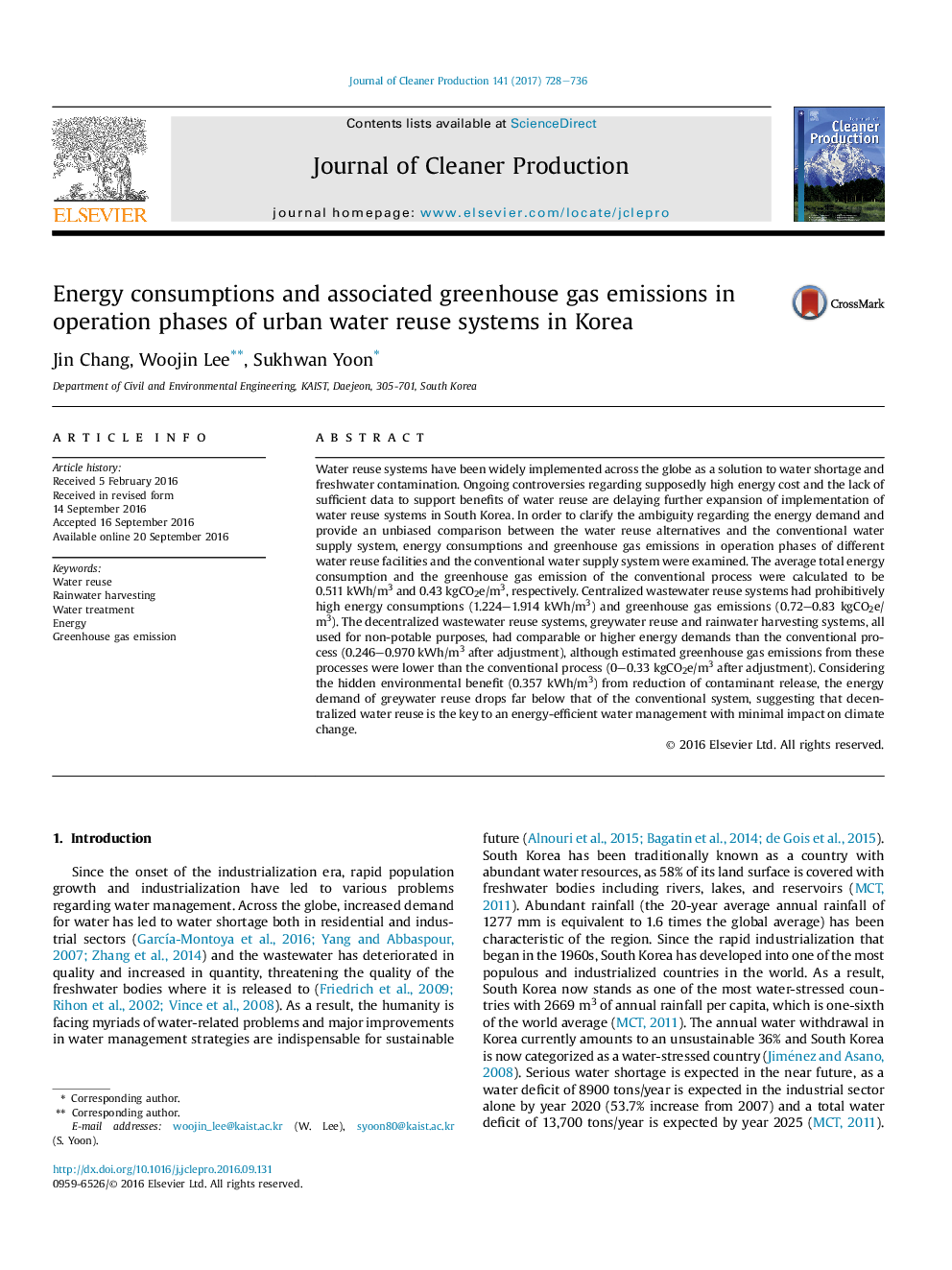| Article ID | Journal | Published Year | Pages | File Type |
|---|---|---|---|---|
| 5481726 | Journal of Cleaner Production | 2017 | 9 Pages |
Abstract
Water reuse systems have been widely implemented across the globe as a solution to water shortage and freshwater contamination. Ongoing controversies regarding supposedly high energy cost and the lack of sufficient data to support benefits of water reuse are delaying further expansion of implementation of water reuse systems in South Korea. In order to clarify the ambiguity regarding the energy demand and provide an unbiased comparison between the water reuse alternatives and the conventional water supply system, energy consumptions and greenhouse gas emissions in operation phases of different water reuse facilities and the conventional water supply system were examined. The average total energy consumption and the greenhouse gas emission of the conventional process were calculated to be 0.511Â kWh/m3 and 0.43Â kgCO2e/m3, respectively. Centralized wastewater reuse systems had prohibitively high energy consumptions (1.224-1.914Â kWh/m3) and greenhouse gas emissions (0.72-0.83Â kgCO2e/m3). The decentralized wastewater reuse systems, greywater reuse and rainwater harvesting systems, all used for non-potable purposes, had comparable or higher energy demands than the conventional process (0.246-0.970Â kWh/m3 after adjustment), although estimated greenhouse gas emissions from these processes were lower than the conventional process (0-0.33Â kgCO2e/m3 after adjustment). Considering the hidden environmental benefit (0.357Â kWh/m3) from reduction of contaminant release, the energy demand of greywater reuse drops far below that of the conventional system, suggesting that decentralized water reuse is the key to an energy-efficient water management with minimal impact on climate change.
Related Topics
Physical Sciences and Engineering
Energy
Renewable Energy, Sustainability and the Environment
Authors
Jin Chang, Woojin Lee, Sukhwan Yoon,
